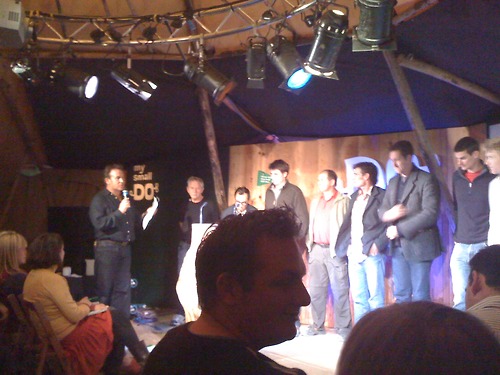I had an email yesterday from a good friend in north Wales. She'd been into her local branch of Tesco to discover that they had a "buy 2 for £3" offer on selected seasonal vegetables. It would be super nice to think that they were starting to act responsibly and promote food that's been seasonally harvested in the country it's eaten, to improve freshness & nutrition, increase prosperity of farmers, and reduce carbon emissions.
There was one small snag though. Tesco don't appear to be bothered by which country's season they are referring to. Their offer was for:
Asparagus (air freighted in from Mexico)
Kenya beans…. (air freighted from Kenya)
Green Runner beans (air freighted from Morocco)
Bigger snags were to come. Trading Standards impotent about Tesco's dodgy claim, because technically the food was 'seasonal' - just not in the UK. Somewhere in their system, there's a missing connection...
About 30 years ago (yeeks) I spent a couple of weeks winter / spring climbing in the Cairngorms and Skye. In the Cairngorms, due to youthful, blissful ignorance, a group of us were avalanched in Corrie An t'Sneachda and allthough badly shaken, we walked away with no more damage than a lost axe and glove.
When I returned to Shefflield Uni a few weeks later, I made it my job to become an expert in snow avalanches and even now, can picture the front of Colin Fraser's book on the subject. The desire to do that came from a realisation of consequences that could be triggered again by the yawning gap between what I knew and what happens on the mountains.
What scale of near miss I wonder, will it take for us to feel the same about safety of our food system?
Earlier this week, Jeremy Leggett, writing in the Guardian, said:
"During the financial crash the world went within weeks from a received wisdom that investment banks had squeezed risk out of complex derivatives, to a spiralling doubt, to a tipping point of disbelief and panic. With peak oil, officials around the world, corporate and governmental, would experience exactly the same collapse of confidence in their cosy cultural assumptions. A second giant industry would have been found to have its asset assessment systemically and ruinously wrong. The net impact would be that oil-producing nations would begin to husband their own resources: keeping exports back for use in their own oil-hungry multi-hundred-billion dollar-and-rouble infrastructure programmes.
This is a scenario that could lead to food delivery lorries failing to reach Tesco in time for Friday-night shopping.
The lessons from the financial crash ought to be stark. The prevailing culture mocked the disbelievers, ahead of the crash. Gillian Tett, capital markets editor at the FT, saw the crisis coming because she was a trained anthropologist and knew how to recognise a cult when she saw one. She was accused of scaremongering from the stage of the World Economic Forum."
Here's a small do. Next time you're in a food shop, ask for the manager, and pose this question "I've been hearing a bit about the impact of peak oil on food production and distribution. How much have you heard from your suppliers, colleagues or manager about this?" Send your responses to emily.g@growingwales.org
 Friday, April 16, 2010 at 7:47AM
Friday, April 16, 2010 at 7:47AM  Do,
Do,  Doing,
Doing,  Improv,
Improv,  Rob Poynton
Rob Poynton 

